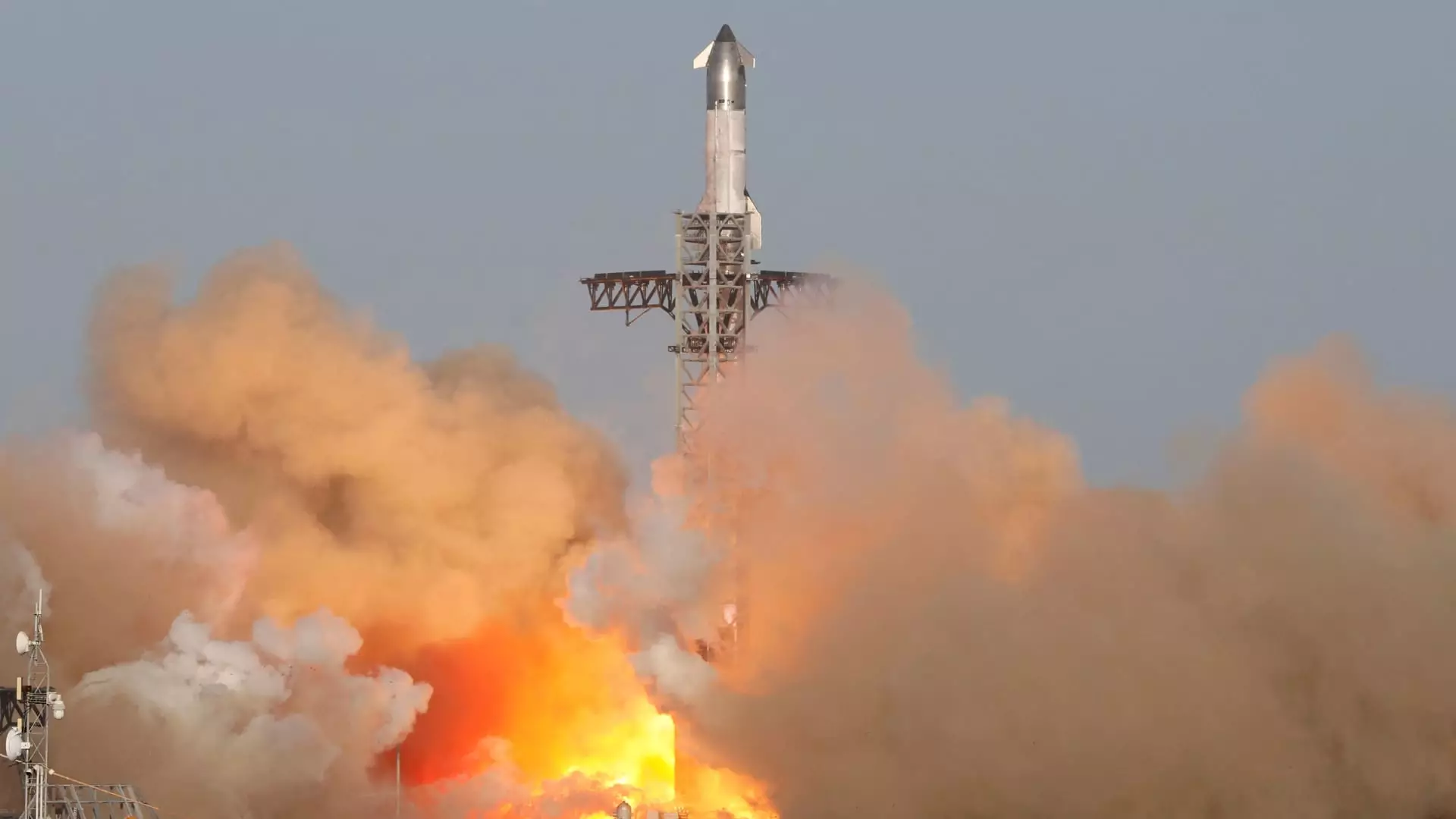The ongoing saga of SpaceX’s Starship program serves as a potent reminder of both the incredible potential and inherent pitfalls of commercial space exploration. Recent testing failures, particularly the incident that led to the grounding of multiple Florida airports, have spotlighted essential questions regarding safety protocols and regulatory efficacy in a rapidly evolving industry. While SpaceX has positioned itself as a revolutionary force in the universe of aerospace, its missteps suggest that unbridled ambition can come with significant risk—not only to its missions but also to commercial aviation and public safety.
In pursuit of lofty goals—quite literally—SpaceX is at the forefront of what many hope will be a new era of space exploration. However, incidents like the recent one raise serious concerns about the adequacy of oversight in the sector. Can one company, especially one led by the controversial Elon Musk, truly self-regulate in a way that ensures the safety of civilians in the skies beneath its space vehicles? The pressing need for comprehensive regulatory frameworks becomes clear in instances such as these, where the lines between innovation and recklessness can appear dangerously blurred.
Debris and Disruption: The Immediate Fallout
The FAA’s response to the Starship misfire was swift; flights at key Florida airports were paused while the agency initiated a response protocol to mitigate risks from falling debris. This wasn’t an isolated event—it’s the second time this year that commercial aviation infrastructure was disrupted due to SpaceX’s ambitious tests. The implications are particularly alarming considering that Florida’s airspace is among the busiest in the nation, with myriad commercial and private flights operating every day.
While the FAA has a duty to ensure safety, it also faces the challenge of remaining balanced in a world captivated by the promise of private space missions. Yet, the repeated strain placed on the airspace system reveals a clear need for accountability. Allowing SpaceX to launch another test before fully resolving past incidents raises important questions about whether the regulatory framework is robust enough—or if it is too lenient in the face of such monumental technologies.
Elon Musk: Innovator or Risk-Taker?
Elon Musk has long been a polarizing figure, embodying the dualities of genius and hubris. On one hand, his company has revolutionized how we think about space travel; on the other, it raises eyebrows with every incident that threatens the safety of the public. Musk’s reported connections and influence over regulatory bodies like the FAA exacerbate these concerns. The melding of governmental oversight with corporate ambition raises a potential conflict of interest that should not be ignored.
When influential figures tie their fortunes to national agencies, public trust may erode. Democratic lawmakers have already voiced apprehension about Musk’s reach within the federal infrastructure. Could it be that the lines between business goals and regulatory oversight are becoming too porous? As lucrative as the commercial space industry may appear, unbridled ambition paired with inadequate checks can lead to catastrophic results.
The Need for Balanced Regulation
SpaceX is undoubtedly a pioneer, pushing the boundaries of what is achievable in aerospace. However, their continuous trail of mishaps calls for a reconsideration of current regulatory measures. While innovation is essential, we must not forget that safety is paramount, especially when the stakes include lives, livelihoods, and the integrity of our air travel systems.
Effective regulation must strike a balance between encouraging innovation while ensuring strict compliance with safety standards. The faltering confidence in how well the FAA can oversee aerospace companies may necessitate a more hands-on approach, perhaps empowering independent advisory bodies to scrutinize ambitious projects.
While companies like SpaceX are unlocking new frontiers for the human experience, there must be seasoned checks in place to prevent the ambition of one man from overshadowing the fundamental need for safety. The Starship failures should serve as a pivotal learning moment for regulators, industries, and the public alike to ensure a future in space that doesn’t jeopardize our airspace on Earth.

